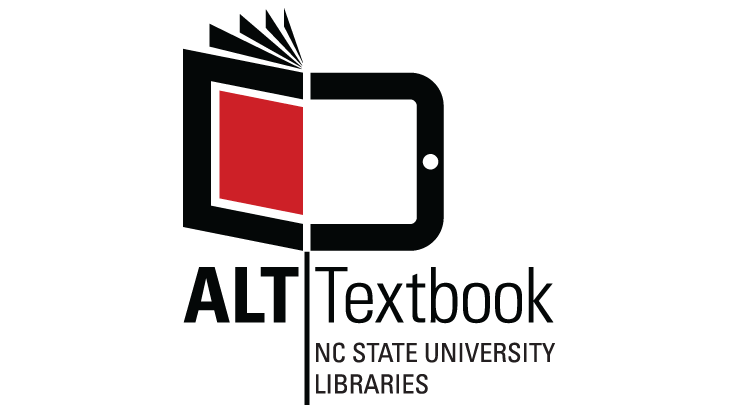
Libraries announces its annual Alt-Textbook Grants to faculty

Libraries announces its annual Alt-Textbook Grants to faculty
The NC State University Libraries has awarded its 2021-2022 Alt-Textbook Grants. This year, eight unique courses across the university will receive support through the program, which will directly impact over 900 students and save them a total of $75,432 each semester.
The fall 2021 Alt-Textbook faculty awardees are:
Since its inception in 2014, the Libraries Alt-Textbook program offers small grants to faculty to create cost-free alternatives to traditional commercial textbooks. Inspired by open textbook projects at Temple University and UMass-Amherst, the Libraries developed a mini-grant approach to encourage faculty to adopt or create open educational resources (OERs). The number of applications the Libraries receives for Alt-Textbook projects has been steadily increasing. The majority of faculty applicants cite concerns over student costs as their primary reason for applying. Thus far, over 75 Alt-Textbook grants have saved NC State students millions of dollars in textbook costs.
Dr. Braden, psychology professor and former Dean of the College of Humanities and Social Sciences, chose an open textbook for his Psychology 200 “Introduction to Psychology” survey class, which has about 200 students. “I pursued the grant because [Libraries director] Greg Raschke made a persuasive presentation to our college's leadership team about the cost to students of large introductory course textbooks. I realized I was part of the problem,” Braden says.
After consulting with the Libraries’ Open Knowledge Center, Braden chose the OpenStax Psychology 2e package. Through OpenStax, Braden can provide the text to his students and he gains access to a custom Moodle template, teaching slides, and more.
The Alt-Textbook grant enabled Braden to do more than just pick another textbook. “It has helped me by giving me both direct support and indirect support—I hired a TA to help me redesign my course,” he says. “It will help my students by giving them a better organized and designed experience in addition to a free text.”
Like Braden, Dr. Morrill wanted to save his students an expense. But he had a compelling pedagogical reason, too.
Morrill found that, each year he taught his Economics 468 “Game Theory” class, his lectures diverged a little more from the assigned textbook, which came in at a hefty $158 for each of his 90 or so students. Then, that book went out of print.
“When I started, my lectures closely resembled the textbook, but each year I would tinker with each lecture to try to make it better,” Morrill says. “After a decade of doing this, I found the textbook no longer was as close to my lectures as I would like. I've long thought it made sense to type up my notes as a free alternative to the textbook.”
Morrill is using the Alt-Textbook grant to support the development of an open education resource from his extensive lecture notes. “I believe this will result in a better class, and I love the idea of not making my students pay more than $100 for a resource that is only partially helpful,” he says. “I think it will make the class better by providing a more tailored experience for the students. My intention is that the resources I provide the students will exactly ‘fit’ the lectures I give.”
For more information about the Alt-Textbook Project at the Libraries, including its Open Textbook and Open Pedagogy Grants, visit the project website.